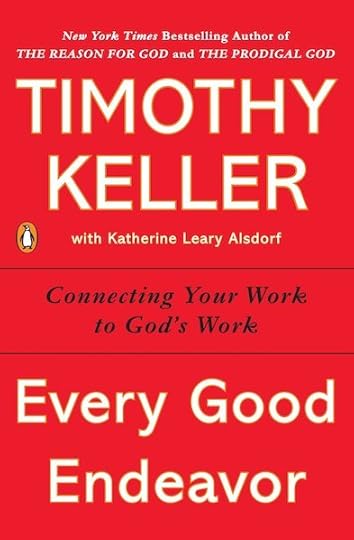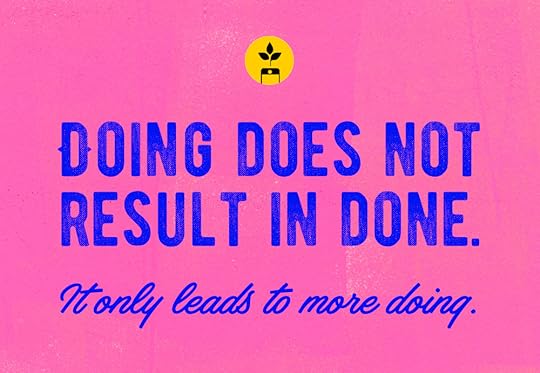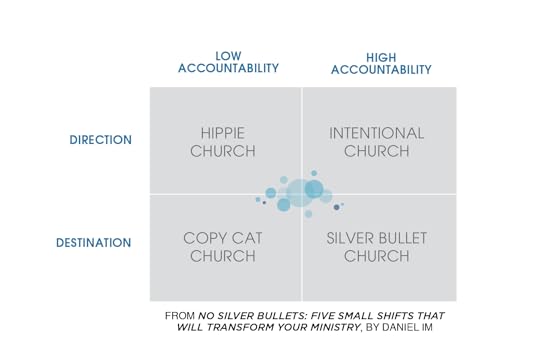Daniel Im's Blog, page 13
August 14, 2018
Why Every Church Planter Should Plant Pregnant

Planting a church is like having a baby.
It’s hard to know when you should start trying. During pregnancy some babies thrive, and others have more of a difficult time. When the baby is delivered, it’s messy and painful, but in the end a beautiful life is born, the labor is forgotten, and we often want to have another.
Planting a church is like having a baby
Click To Tweet
In the same way it’s difficult to know when you should start plans for a daughter church; after all, there always seems to be a countless number of reasons to put it off:
“We aren’t even two years old, and I’m the only staff member.”
“When we begin to hit budget, I’ll consider starting a daughter church.”
“We’re too small. If we start a daughter church, that’ll cannibalize our people and finances.”
“Isn’t that the denomination’s responsibility anyway?”
“I’m barely keeping my head above the water, and you want me to add something that big onto my plate?”
Sound familiar? If you’ve found yourself saying similar things, you’re not alone.
However, once you get past those initial hurdles and decide to plant a daughter church, sometimes the assessment, training, and preparation of the planter goes well; however, other times the process unfortunately ends prematurely.
And when that daughter church is finally ready to be launched, it’s painful because everything changes.
You lose leaders, people, tithes, and your sense of normal.
However, after planting, our experience is that God not only replaces those congregants you sent out with the plant, but he often adds more to your flock as well. After all, didn’t Jesus say that “whoever is faithful in very little is also faithful in much, and whoever is unrighteous in very little is also unrighteous in much”? (Luke 16:10).
So ditch the birth control and start having babies.
Yes, giving to church planting is important, but don’t limit your church’s involvement just to money.
Go and plant churches. Partner with other churches, partner with seminaries, partner with your denomination, and partner with networks. Choose not to become a cul-de-sac on the Great Commission Highway. Since God likes to surprise people, get in a place where he can surprise you and the rest of the world.
Dear church planter, ditch the birth control and start having babies.
Click To Tweet
What would happen to church planting in our cities if churches, denominations, networks, and seminaries stopped working in silos?
What if they came together with a map of their city in hand, started with prayer, and then strategically plotted out each of their roles, much like a general would in wartime? Would we see God’s kingdom more fully realized?
We believe the answer is a large resounding yes!
So let’s stop working in silos. Let’s stop being afraid of working with one another. And let’s start partnering together for the sake of the gospel and the kingdom.
Then and only then, perhaps we’ll see a church multiplication movement in our generation!
Giving to church planting is important, but don’t limit your church’s involvement just to money.
Click To Tweet
*This was a modified excerpt from the book that I co-authored with Ed Stetzer, Planting Missional Churches: Your Guide to Starting Churches that Multiply (2nd ed).
August 7, 2018
Top Quotes on Every Good Endeavor by Timothy Keller

As many of you know, this year I’ve committed to reading/listening to as much of Timothy J. Keller as possible.
It hasn’t gone as well as I thought. Partly because I’m writing my next book (I wasn’t anticipating this), and also because I like reading broadly. So instead of one year of Keller, it might end up being a few years of Keller.
In any case, I previously listed my favorite quotes here for Counterfeit Gods: The Empty Promises of Money, Sex, and Power, and the Only Hope that Matters.
I’ll do the same for Every Good Endeavor: Connecting Your Work to God’s Work, my latest Keller read.
“The Bible begins talking about work as soon as it begins talking about anything—that is how important and basic it is.”
“In the beginning, then, God worked. Work was not a necessary evil that came into the picture later, or something human beings were created to do but that was beneath the great God himself. No, God worked for the sheer joy of it.”
“The book of Genesis leaves us with a striking truth—work was part of paradise.”
“Work is as much a basic human need as food, beauty, rest, friendship, prayer, and sexuality; it is not simply medicine but food for our soul.”
“Without meaningful work we sense significant inner loss and emptiness. People who are cut off from work because of physical or other reasons quickly discover how much they need work to thrive emotionally, physically, and spiritually.”
“According to the Bible, we don’t merely need the money from work to survive; we need the work itself to survive and live fully human lives.”
We need the work itself to survive and live fully human lives.
Click To Tweet
“Work—and lots of it—is an indispensable component in a meaningful human life. It is a supreme gift from God and one of the main things that gives our lives purpose. But it must play its proper role, subservient to God.”
“Work has dignity because it is something that God does and because we do it in God’s place, as his representatives. We learn not only that work has dignity in itself, but also that all kinds of work have dignity.”
“Work is our design and our dignity; it is also a way to serve God through creativity, particularly in the creation of culture.”
Work is a way to serve God through creativity, particularly in the creation of culture.
Click To Tweet
“The question regarding our choice of work is no longer “What will make me the most money and give me the most status?” The question must now be “How, with my existing abilities and opportunities, can I be of greatest service to other people, knowing what I do of God’s will and of human need?”
“If the point of work is to serve and exalt ourselves, then our work inevitably becomes less about the work and more about us. Our aggressiveness will eventually become abuse, our drive will become burnout, and our self-sufficiency will become self-loathing.”
“But if the purpose of work is to serve and exalt something beyond ourselves, then we actually have a better reason to deploy our talent, ambition, and entrepreneurial vigor—and we are more likely to be successful in the long run, even by the world’s definition.”
“Parents give their children what they need—character—through the diligence required for the chores they assign them.”
“The gospel frees us from the relentless pressure of having to prove ourselves and secure our identity through work, for we are already proven and secure.”
“You should expect to be regularly frustrated in your work even though you may be in exactly the right vocation.”
“In a world where people have on average three to four different careers in their work lives, it is perfectly natural that changing careers may be necessary to maximize fruitfulness. God can—and often does—change what he calls us to do.”
God can—and often does—change what he calls us to do.
Click To Tweet
“Work can convince you that you are working hard for your family and friends while you are being seduced through ambition to neglect them.”
“Without the gospel of Jesus, we will have to toil not for the joy of serving others, nor the satisfaction of a job well done, but to make a name for ourselves.”
“Personal idols profoundly drive and shape our behavior, including our work.”
“Idols of comfort and pleasure can make it impossible for a person to work as hard as is necessary to have a faithful and fruitful career.”
“Idols of power and approval, on the other hand, can lead us to overwork or to be ruthless and unbalanced in our work practices.”
“Idols of control take several forms—including intense worry, lack of trust, and micromanagement.”
“To be a Christian in business, then, means much more than just being honest or not sleeping with your coworkers. It even means more than personal evangelism or holding a Bible study at the office. Rather, it means thinking out the implications of the gospel worldview and God’s purposes for your whole work life—and for the whole of the organization under your influence.”
“Those in the helping professions (and that includes pastoral ministry as well as medicine) are tempted to feel superior because our work is so noble and so draining.”
Personal idols profoundly drive and shape our behavior, including our work.
Click To Tweet
“As Jesus says, to be fully human boils down to loving God and loving our neighbor. Everything else—our accomplishments, our causes, our identity, and our feelings—is a distant second.”
“For many of us, being productive and doing becomes . . . an attempt at redemption. That is, through our work, we try to build our worth, security, and meaning.”
“The very definition of a Christian is someone who not only admires Jesus, emulates Jesus, and obeys Jesus, but who “rests in the finished work of Christ” instead of his or her own.”
“A Christian is able to rest only because God’s redemptive work is likewise finished in Christ.”
Be sure to pick up a copy of Every Good Endeavor: Connecting Your Work to God’s Work today. It’s a wonderful theological reflection that helps us connect our work to God’s work.
July 31, 2018
God is NOT Anti-System

In 1995, astronomers thought there were were only 3000 galaxies.
Close to 10 years later, they realized there were 10,000. And now, through the Hubble telescope, they are estimating 100 billion!
Consider the vastness of our solar system, and how intricately connected it is to each other and to other systems in the universe. If the sun were to die out, it would blow away half of its mass, inflate itself, and swallow the earth. After that, this would push Jupiter, Saturn, Uranus, and Neptune way out and off their orbit. And that’s just the tip of the iceberg…
Don’t you find it fascinating that one of the first things God created was in fact, a system? The solar system? The system of the universe?
This goes to show us that He is not anti-systems in anyway.
One of the first things God created was a system—the solar system.
Click To Tweet
I recently came across another system that you might not have heard about…
I learnt about it from a TED talk on how trees talk to each other—the system is called a mycorrhizal network.
To put it simply, underground, forests are connected via fungal roots…by mushrooms.
This system is “so dense that there can be hundreds of kilometers of [these fungal threads called] mycelium under a single footstep.”

“And not only that, the mycelium connects different individuals in the forest, individuals not only of the same species but between species, like birch and fir, and it works kind of like the Internet.”
In other words, everything is so interconnected into a system that if one tree is not getting enough sun or nutrients, other related trees can pass on nutrients to them via this underground system!
I wonder if this is what Paul was talking about when he said in Romans 1:20 that God’s “invisible attributes, that is, his eternal power and divine nature, have been clearly seen since the creation of the world, being understood through what he has made.”
If that’s the case, then God reveals himself to us not only through what he’s made, but also through the systems that he made that interconnect what he’s made to one another.
I feel like this nuance of God’s character and attributes is often skipped over.
We focus heavily on Romans 1:16 at the neglect of Romans 1:20.
1:16 – For I am not ashamed of the gospel, because it is the power of God for salvation to everyone who believes, first to the Jew, and also to the Greek.
1:20 – For his invisible attributes, that is, his eternal power and divine nature, have been clearly seen since the creation of the world, being understood through what he has made. As a result, people are without excuse.
Now don’t get me wrong. I’m not saying that we stop verbally proclaiming and preaching the power of the gospel.
I’m not exchanging verse 20 for verse 16. It’s not either/or issue, it’s both/and.
In other words, I believe that…
The power of the gospel is communicated through the preaching of the word
The power of the gospel is communicated through discipling one another
The power of the gospel is communicated through praying, fasting, and laying hands on one another
The power of the gospel is communicated through evangelism, church planting, missions, and social justice
But if God not only created the trees, plants, mushrooms, but also connected them together in an intricate system (just like he did with the solar system), shouldn’t the power of the gospel also be able to be communicated through systems?
And more specifically, through discipleship systems?
What is a discipleship system anyway?
It’s not a newfound program or curriculum that I’m unveiling to you like a tech conference unveiling their latest products and research.
A discipleship system is the way discipleship happens in both conscious and unconscious ways, or intentional and unintentional ways—and how they relate to and affect one another.
A discipleship system is the way discipleship happens in both intentional and unintentional ways.
Click To Tweet
So consciously, when you meet at Starbucks for your discipleship group, and unconsciously, what you’re subtly communicating about God’s word when you use Greek and Hebrew in a sermon.
And intentionally, when you announce to your church that you’re going to have small groups or mid-size communities, and unintentionally, when two guys are texting one another for accountability.
Discipleship is happening in each of those instances in ways that you want it to and also in other ways that you don’t want it to.
To uncover the discipleship systems of your church, and learn how discipleship happens in both unintentional and intentional ways in your church, check out the Influences Matrix from chapter 1 of my book, No Silver Bullets (also diagrammed below).
You can learn more about discipleship systems and the Influences Matrix by clicking here to download the first chapter of my book for free!
July 24, 2018
Should Christians Have a Side Hustle?

Though half of all working millennials are side hustling—according to a multi-year study on freelancing in the U.S.—this isn’t just a millennial thing.
Approximately a third of both Gen Xers and boomers are also hustling on the side.
Just think about the people you know. How many of your friends drive for Uber or Lyft? Rent out their place on Airbnb when going on a vacation? Or have ever sold something on Etsy or eBay?
They’re a part of the growing freelance or gig economy that 57.3 million Americans were a part of in 2017—that’s more people than the total combined population of Canada, Liberia, and Puerto Rico! In fact, based on trends, by 2027, more than half of all working Americans will be a part of the freelance economy.
Side hustles are the new normal
To continue reading, click here.
I wrote this article originally for Tithe.ly. It’s adapted from my upcoming book that will be released Nov 2019. If you want to be among the first to hear about it and get a ton of extra bonuses, I’d be honored if you clicked here to sign up.
July 17, 2018
3 Must-Listen to Podcast Episodes

If you’re like me, I have a never ending list of To-Dos.
So when I can redeem my time and knock out two things at once, I celebrate! That’s why I love podcasts and audiobooks. They keep me sharp, and I don’t need to be sitting down to listen to them.
As a result, when I’m commuting back and forth from work, vacuuming/mowing the lawn, and working out, I always have my bluetooth earbuds in, growing while doing.
Here are 3 episodes that I thought you might enjoy:
Episode 300: A Glimpse Into the Lives of Ed Stetzer, Todd Adkins, and Daniel Im
For the 300th episode of the New Churches Q&A Podcast, I wanted to take it personal. So on this episode, you’ll hear our personal stories, fears, and prayers for the Church.
Episode 23: Will Porn Ruin My Marriage?
In this episode of the IMbetween Podcast, my wife and I interview Dr. Simon Sheh about pornography, the reasons behind porn addiction, and what to do if you or your spouse is addicted to porn. This is actually the second episode that we did on porn. The first one was about how to talk to your kids about porn.
Episode 265: Why People Leave Your Church
In this episode of the 5LQ podcast, Todd Adkins and I interview Scott McConnell on some fascinating research regarding why people leave churches.
Happy listening!
Subscribe to the New Churches Q&A Podcast in Apple Podcasts
Subscribe to the IMbetween Podcast in Apple Podcasts
Subscribe to the 5LQ Podcast in Apple Podcasts
July 3, 2018
Why Do We Neglect the Bible? (and what to do about it)

“The Bible ought not to be torn limb from limb, and its joints hung up like meat in the shambles.”
This last week, as I was writing a sermon on the end of Colossians, I came across these stark words from Charles Spurgeon, aka the Prince of Preachers. It’s from a sermon that he preached on December 14, 1873. Let’s keep on reading,
Beyond all other books it will bear dissection, for it is vital in every sentence and word. Since it is a mosaic of priceless gems, you will be enriched even if you extract a jewel here and there, but to behold its divine beauty you must contemplate the mosaic as a whole. No idea of the magnificent design of the entire Scriptures can enter the human mind by reading it in detached portions, especially if those separated passages are interpreted without reference to the run of the writer’s thoughts. Let Scripture be read according to the rules of common sense and that will necessitate our reading through a book and following its train of thought. Thus shall we be likely to arrive at the mind of the Holy Spirit. I say this because I may have to disturb your idea of the meaning of a passage of Scripture this morning, for a short time. But you need not be alarmed, for after I have disturbed, I shall, most probably, confirm it. I shall pull down to build up again.
The Bible is a wonderful gift from God. It’s His words to us. Simultaneously it’s history, poetry, wisdom, prophecy, and the Gospel. It’s not lacking in anyway, and does not have to be added to. It’s complete, never changing, and irreplaceable.
The Bible is a mosaic of priceless gems.
Click To Tweet
So why is the Bible so neglected?
Why do almost nine out of ten American households own a Bible, but more than half have read little or none of it? Why do “less than a quarter of those who have ever read a Bible have a systematic plan for reading the Christian scriptures each day”? And why is it that “a third of Americans never pick it up on their own”?
This research is from a study that LifeWay Research conducted among Americans and their views of the Bible.
Is it because we don’t see the Scriptures as they truly are—as the true, inerrant, and infallible word of God? Or, as Charles Spurgeon put it, “a mosaic of priceless gems”?
Perhaps.
Among those surveyed, more than half saw the Bible as a good source of morals, while only a third saw it as true and/or life-changing.
When asked “Why have you not read the Bible more?” 27% said they don’t prioritize it, 15% said they don’t have time, and 13% said they have read enough of it.
I love research and all of this is fascinating, but here’s what stood out to me the most…
…the following responses on how people approached reading the Bible on their own:
Here’s a chart from the research (you can click on the image to read the full report).
If this is how individuals are approaching the Scriptures, no wonder the majority see it as a good source of morals. It’s like a coffee table book, or one of the Chicken Soup for the Soul books.
If all we do is read a verse here and a verse there, or a devotional where it’s 10% Scripture and 90% someone else’s reflections on that verse of Scripture, we’re doing what Charles Spurgeon so aptly said—we’re tearing the Scriptures limb from limb, and hanging up its joints like meat in the shambles.
Yes, it’s important that we dig into the meaning of each and every sentence and word, “but to behold its divine beauty you must contemplate the mosaic as a whole.” Isn’t that why Charles Spurgeon went onto say this? “No idea of the magnificent design of the entire Scriptures can enter the human mind by reading it in detached portions, especially if those separated passages are interpreted without reference to the run of the writer’s thoughts.”
When digging deeper into the research, I was surprised to see that those between the ages of 18-24 were the most likely age group to have read none of the Scriptures.
This is alarming. Especially since reading the Bible regularly while growing up was the greatest predictor for spiritual health as a young adult, according to another study by LifeWay Research.
Those between the ages of 18-24 were the most likely age group to have read none of the Scriptures.
Click To Tweet
So what does this mean? And what can we do about it?
1. Spend time systematically reading through the Scriptures
Don’t just randomly open it up and point to a verse. Read through books of the Bible, or chapters at a time. In fact, I’d encourage you to start with Psalm 19. And here’s a sermon I preached on that passage recently.
2. If you’re a preacher, make the Bible accessible
And stop overusing Greek and Hebrew—especially when it’s unnecessary. Here’s an article I wrote on the why behind that statement and three ways you can normalize Bible reading in your church.
3. Get into community and talk about the Scriptures with others
I’ve seen many community groups/small groups/life groups/Sunday school classes (or whatever you want to call them), focus more on the stuff of life, than the stuff of Scriptures. Start with the Scriptures and you’ll end up talking about how to apply it to your life. But if you start with life, you may or may not ever get to the Scriptures.
If you would like to learn how to make Bible reading and other core spiritual practices a key part of your ministry, check out my book, No Silver Bullets: Five Small Shifts that will Transform Your Ministry.
June 26, 2018
The WHY Behind Your Decisions

Have you ever thought through the WHY behind your decisions?
In other words, why do you make the decisions you do? For example,
If you have a Saturday open on your schedule, do you play a round of golf with your buddies, or go to the swimming pool with your children?
If a meeting is cancelled, do you catch up with your email? Check social media? Or. read the news or a book?
When the kids go to bed, do you watch Netflix? Read a book? Work on a project? Or, talk with a friend or your spouse?
These decisions are often subconscious—they’re underneath the surface. We make them without thinking. They are our habits, our defaults, our normals, or our vices.
Many of our decisions are often subconscious—they’re underneath the surface.
Click To Tweet
Whether you realize it or not, many of these kinds of decisions have already been made for you based on your values or principles. These are the very elements that set the status quo for us.
If this is true, wouldn’t it be worth your time to do a little introspection and uncover the why behind your decisions? Your values and principles?
A while back, I came across Amazon’s leadership principles. I like how they describe them,
Our Leadership Principles aren’t inspirational wall hanging. These Principles work hard, just like we do. Amazonians use them, every day, whether they’re discussing ideas for new projects, deciding on the best solution for a customer’s problem, or interviewing candidates.
Here they are:
If you’re short on time, feel free to scroll through and skim the descriptions.
Customer obsession: Leaders start with the customer and work backwards. They work vigorously to earn and keep customer trust. Although leaders pay attention to competitors, they obsess over customers.
Ownership: Leaders are owners. They think long term and don’t sacrifice long-term value for short-term results. They act on behalf of the entire company, beyond just their own team. They never say “that’s not my job.”
Invent and simplify: Leaders expect and require innovation and invention from their teams and always find ways to simplify. They are externally aware, look for new ideas from everywhere, and are not limited by “not invented here.” As we do new things, we accept that we may be misunderstood for long periods of time.
Are right, a lot: Leaders are right a lot. They have strong business judgment and good instincts. They seek diverse perspectives and work to disconfirm their beliefs.
Learn and be curious: Leaders are never done learning and always seek to improve themselves. They are curious about new possibilities and act to explore them.
Hire and develop the best: Leaders raise the performance bar with every hire and promotion. They recognize exceptional talent, and willingly move them throughout the organization. Leaders develop leaders and take seriously their role in coaching others. We work on behalf of our people to invent mechanisms for development like Career Choice.
Insist on the highest standards: Leaders have relentlessly high standards—many people may think these standards are unreasonably high. Leaders are continually raising the bar and driving their teams to deliver high-quality products, services, and processes. Leaders ensure that defects do not get sent down the line and that problems are fixed so they stay fixed.
Think big: Thinking small is a self-fulfilling prophecy. Leaders create and communicate a bold direction that inspires results. They think differently and look around corners for ways to serve customers.
Bias for action: Speed matters in business. Many decisions and actions are reversible and do not need extensive study. We value calculated risk taking.
Frugality: Accomplish more with less. Constraints breed resourcefulness, self-sufficiency and invention. There are no extra points for growing headcount, budget size, or fixed expense.
Earn trust: Leaders listen attentively, speak candidly, and treat others respectfully. They are vocally self-critical, even when doing so is awkward or embarrassing. Leaders do not believe their or their team’s body odor smells of perfume. They benchmark themselves and their teams against the best.
Dive deep: Leaders operate at all levels, stay connected to the details, audit frequently, and are skeptical when metrics and anecdote differ. No task is beneath them.
Have backbone, disagree and commit: Leaders are obligated to respectfully challenge decisions when they disagree, even when doing so is uncomfortable or exhausting. Leaders have conviction and are tenacious. They do not compromise for the sake of social cohesion. Once a decision is determined, they commit wholly.
Deliver results: Leaders focus on the key inputs for their business and deliver them with the right quality and in a timely fashion. Despite setbacks, they rise to the occasion and never settle.
Do you have a similar set of values or principles in your church?
Though I wrote No Silver Bullets to help church leaders and pastors develop a discipleship pathway for their church, I had to include a chapter on vision, values, and strategy. If not, then the principles in my book would just end up being the very thing that I wrote against—a silver bullet.
Here’s an excerpt from page 203 about the importance of values for your church:
Though every church shares the same starting point for their vision—the Great Commandment and Commission—the way they approach it is unique. This is because every church has a unique personality—a distinct set of values. As a result, it is precisely the unique values of a church that drive which strategic trade-offs they will make to move toward their vision. This is because the church’s values act as the guardrails, riverbanks, and boundaries for their strategy. In other words, values influence the way the core system of your church runs.
For example, a church that has the value, “Kingdom multiplication,” is going to make the strategic trade-offs to set aside funds for future church planters, send out members to be a part of church-planting teams, and train staff to be future church planters or campus pastors. In contrast, a church that has “the marginalized matter” as one of their values, will make a different set of strategic trade-offs by allocating their funds for community engagement, training up their members to serve the homeless, and possibly having a strategic partnership with their local food bank.
Your values act as the guardrails, riverbanks, and boundaries for your strategy.
Click To Tweet
Do you see how important it is to identify your church’s values?
They influence behavior and strategic decision-making. They influence the way your systems operate. They influence the strategic decisions and direction you need to make to get to your vision. They are essentially the personality of your church.
If you want to learn the four types of values in your church and get an audit to help you determine your church’s values, be sure to pick up a copy of No Silver Bullets.
Do you have a similar set of values or principles for your life?
Before Christina and I got married (during pre-marital counseling), we wrote out our values and agreed on the type of marriage we wanted to build. Here are our values:
It is our desire to exemplify and share Christ’s love for us through honoring and loving others with sincerity and devotion
We commit to keeping Christ at the center of our marriage through being joyful in hope, patient in affliction, and faithful in prayer
We desire for our home to be a blessing and safe haven for all by practicing hospitality and showing others God’s love, compassion, and mercy
We commit to overcoming evil with good
Romans 12:9-21
12 years later, these values still stand true and guide the decisions we make and the way we spend our time (the scripture verse is actually engraved on the inside of our wedding bands). In fact, these values are precisely why we started a podcast!
We came to the conclusion that we would never have enough time to welcome into our home everyone we wanted/needed to. So while we’re still doing that, we wanted to also share our lives and Christ’s love with as many people as possible.
So back to you and back to the beginning of this article: Why do you make the decisions you do?
I hope you can take some time this week to dig into this important, yet often neglected question.
As a side note, we’d love to welcome you into our home by listening to one of the episodes of our podcast.
It’s called the IMbetween Podcast on marriage, parenting, faith, and everything in between. Here are a few of our recent episodes:
Episode 23: Will Porn Ruin My Marriage?
Episode 22: How to Talk to Your Kids About Porn
Episode 21: The Importance of Continuing to Ask Good Questions
Episode 20: How to Raise an Adult
Episode 19: How to Handle and Resolve Conflict
Episode 18: 10 Ways to Explore Your City (Without Breaking the Bank)
We’d also be honored if you’d subscribe and connect with us:
Apple Podcasts
Stitcher
Google Play
Instagram – @imbetweenshow
Twitter – @imbetweenshow
Facebook – @imbetweenshow
June 19, 2018
How to Get People to Serve in Your Church

William Wallace, Melinda Gates, Hitler, Elvis Presley, Billy Graham, Nelson Mandela, Bono, and Jeff Bezos.
What’s your off-the-cuff reaction when you hear those names? Do you think of similarities or differences? If you could group them together with one word, which one would you use?
Would the word “leader” come to mind?
Now you may or may not agree on how effective each one of those individuals were (or are) as leaders, but it’s clear that when they acted, people followed. They led and history is different because of it.
When leaders act, people follow. And history is different because of it.
Click To Tweet
While William Wallace led with passion to secure Scottish freedom from the English, Melinda Gates has led with compassion to give away more money than most people can even begin to fathom. While Hitler led the Germans with an authoritarian grip, Elvis Presley led with his charisma and rolling tunes.
Haven’t you ever noticed that as quickly as you can name leaders, you are able to name different attributes that make each of them uniquely effective? This is because there is no silver bullet to leadership. There is no common set of characteristics that—when put together—produce the end result of a leader.
There is no common set of characteristics that produce the end result of a leader.
Click To Tweet
In fact, just consider the weight of these words from Donald Clifton, the father of Strengths-Based Psychology, the grandfather of Positive Psychology, and the creator of the StrengthsFinder assessment. He was asked, just a few months before his death in 2003, what his greatest discovery was from three decades of leadership research. Here was his response,
A leader needs to know his strengths as a carpenter knows his tools, or as a physician knows the instruments at her disposal. What great leaders have in common is that each truly knows his or her strengths—and can call on the right strength at the right time. This explains why there is no definitive list of characteristics that describes all leaders. [1]
Is every pew sitter a leader?
I guess that depends on your definition of a leader. If you agree with the often-quoted phrase, which I believe is originally attributed to John Maxwell, that “leadership is influence—nothing more, nothing less,” then yes. Every pew sitter is a leader.
That stay-at-home mom is a leader because she is influencing her children
That auto-mechanic is a leader because he is influencing the customers he encounters
That single dad is a leader because he is influencing those at work and his children at home
And that 85-year-old retired marine is a leader because he can influence the next generation by discipling them and displaying what a life well lived looks like
When you realize that everyone in your congregation is a leader in their everyday life, it’s not a big leap to also see them as potential leaders in your church. In fact, I would even advocate that seeing them as potential leaders is incredibly biblical and the very first step to live out Ephesians 4:11-16, so that you can equip them for the work of ministry that God has set apart for them to do.
Your role is not to lead and do everything.
Instead, it’s to equip others so that they can lead and do the work of ministry, so that the body of Christ can be built up, so that the church can reach unity in the faith and in the knowledge of God’s Son, so that we can grow into maturity, and so that we can go and make disciples of all nations because the harvest is plentiful and the workers are few (Eph 4:11-16; Matt 28:18-20; Matt 9:37-38).
Why isn’t the next step a spiritual gift assessment?
At this point, many church leaders often turn to a spiritual gift assessment so that they can help their congregation figure out how they’re gifted and where they should serve. And to that, I say no! Don’t do it.
I’m not saying no to spiritual gifts, and I’m not saying no to assessments. What I am saying no to is a spiritual gift assessment being the very first step to equip your congregation to lead and serve.
After all, let’s say you complete a spiritual gift assessment and your top three gifts are administration, discernment, and mercy. What in the world are you supposed to do with that? Does your awareness of having these spiritual gifts move you one step closer to serving? To know where to serve, in what capacity to serve, and how to serve effectively? Likely not.
While identifying your spiritual gifts is a beneficial exercise, there isn’t always a direct link from identification to getting plugged into the right ministry area.
So instead of starting with a spiritual gift assessment, what if you started with passion? What if you started by helping your congregants identify which ministry area excited them the most? After placing them in that ministry, you could then match them up with a role where their gifts and talents could be utilized and invested for kingdom work.
Do you see how I’m not ignoring their gifting and talents? But instead reprioritizing the order in which we approach them?
In today’s freelance economy (or gig economy) where our congregants are likely juggling more than one job, in addition to managing extra-curricular activities for children, and fighting traffic like never before, people aren’t going to serve in your church in a long-term role simply because they know their gifts (here’s an easter egg: this is the topic of my next book).
To serve, they need to have a deep conviction for the “why.”
Why does your ministry matter? What difference will they make as a result of serving in your ministry? Why is this more important than Netflix, sports, and other activities that they could be doing?
Uncovering the “why” that drives the heart and soul of your people always begins by uncovering and identifying their area of passion. And there’s no quick way to get there. There’s no silver bullet. You need to simply sit down and listen. So what processes do you have in place to do that? To listen?
To serve effectively, we need to have a deep conviction for the “why.”
Click To Tweet
Endnotes:
[1] Tom Rath and Barry Conchie, Strengths Based Leadership: Great Leaders, Teams, and Why People Follow (New York: Gallup Press), 13

June 5, 2018
Routines, Busyness, and Change

I have routines. You have routines. We all have routines.
Whether it’s the way we start our days, commute to work, go to bed, or anything in between, we all have a certain way of doing things. In fact, a recent book on this topic outlined the fact that geniuses—both ancient and modern—tend to live and die by their routines.
Geniuses—both ancient and modern—tend to live and die by their routines.
Click To Tweet
Charles Dickens took three-hour walks every afternoon, Mozart had a regimented daily schedule, and Charles Schultz, creator of nearly eighteen thousand Peanuts comic strips, had a ham sandwich and glass of milk almost every day.
So yes, we all have routines. But why? Is it superstition? Laziness? Why is it that we do things the way that we do?
Routines exist because they are the best, most effective, and efficient way to do the things that need to get done. Well, at least, at one point in time they were the best. At one point in time they were the most efficient. And at one point in time we saw first hand just how effective they were.
The same is true for the church. At one point in time, those programs made sense, but do they still today?
When’s the last time you evaluated them? Or have they just become routine? How much of your church is driven by mottos like, “Well that’s the way we’ve always done it,” or, “Don’t rock the boat,” or “What would dear sister Sally do if you changed things? Her deceased husband basically built this church.”
Change or die.
This is the decision you’ll have to make if you continue to let routines from yesteryear run your church.
The majority of churches in the West are either declining or growing at a pace that’s slower than the community they’re located in. In other words, they’re losing ground. Church has become a litany of activities and busyness. It’s become one program or one thing after another. And there’s no intentionality or movement forward in a direction that demonstrates faithfulness with what God has entrusted that church.
The solution isn’t to look down the street and copy the nearby mega-church. Nor is it to blow everything up and start from scratch. And by all means, staying the same is not an option either. There is no one silver bullet to turning around a dying church or continuing the growth of a healthy one. It takes several little improvements in different areas to add up to growth. And that’s precisely what this book is about.
In No Silver Bullets , Daniel will show you how to shift your church in a Great Commission and Great Commandment direction.
He’ll show you how to make small changes that will get you out of the very routines that are preventing your church from fulfilling it’s God given vision. And he’ll do this by helping you root it into the very fabric of your church—your discipleship pathway.
God has given you talents and God has given the body of Christ talents. So don’t be like a hamster on a spinning wheel, where you are just going around and around without any productive action. Take what God has given you, and learn from what God has given Daniel, and together make something beautiful.
Quite frankly, I’ve seen many churches who have this wide, broad, and deep list of activities.
And their people are busy. Something is always going on during the day and in the evenings. They’re constantly doing things. And they go on and on. But then you look at their impact in the community, and many have never even heard of them. Very few people are being reached for Christ. They simply don’t have a clear direction. They think that busyness is equivalent to obedience. But busyness without the right direction is poor stewardship.
Busyness without the right direction is poor stewardship.
Click To Tweet
So gather your leadership team together and work through the small shifts that are outlined in this book. Stop producing consumers and start releasing disciple makers. Your church and your neighborhood won’t be the same without it. So my prayer is that as you read this book, you would become a better steward of that which God has given you.
Thom S. Rainer
President
LifeWay Christian Resources
This article is the foreword to No Silver Bullets, by Daniel Im.

May 24, 2018
The Mighty Have Fallen. Don’t Join their Ranks.

My heart is heavy as I write this.
Although we’re all sinful and broken, seeing the mighty fall is painful, heart wrenching, and incredibly sobering.
It makes me want to throw up.
Especially when it involves individuals in the faith who have gone ahead of us, paved the way, ministered locally and globally, and seemed to be living a life of faithfulness to the Lord.
I guess God wanted to shine the light and reveal what was hidden.
And this time, he didn’t use a flashlight; he went for the jugular and used those outdoor flood lights you see at baseball fields.
This declaration by the prophet Daniel seems to be quite fitting for this time,
May the name of God
be praised forever and ever,
for wisdom and power belong to him.
He changes the times and seasons;
he removes kings and establishes kings.
He gives wisdom to the wise
and knowledge to those
who have understanding.
He reveals the deep and hidden things;
he knows what is in the darkness,
and light dwells with him.
(Daniel 2:20-22, CSB)
Jesus puts it another way,
For nothing is concealed that won’t be revealed, and nothing hidden that won’t be made known and brought to light. (Luke 8:17, CSB)
Though sin might feel like a personal thing that you can hide, it will eventually come to light.
Though sin might feel like a personal thing that you can hide, it will eventually come to light.
Click To Tweet
Jesus will reveal it.
He knows what’s in the darkness, and he is the light.
If you aren’t willing to take steps to deal with your sin today, he will deal with it for you…on his own timing. And trust me, you don’t want him to bring it to light for you.
I love what it says here in the Proverbs,
Though a righteous person falls seven times, he will get up, but the wicked will stumble into ruin. (Proverbs 24:16, CSB)
The enemy wants to take you out.
He wants to do this because he knows that sin-induced implosions are the way to get to your spouse, your children, your ministry, your family, and your life.
The enemy uses sin-induced implosions to get to everyone in your life.
Click To Tweet
And the enemy knows the kingdom potential that is within a family that generationally knows, loves, and serves God. It’s not about having masses of complacent and consumeristic Christians; what will cause the greatest impact for the kingdom is a few being faithful over the long haul.
So when you fall to sin (it’s not an if, it’s a when), get up!
And when you fall again, get up again.
Again and again as we read above in Proverbs 24:16.
The enemy wants to grind against your soul, wear you down, and make you feel like change is hopeless. He wants to condemn you and tear you apart.
But take heart because “there is now no condemnation for those in Christ Jesus” (Romans 8:1, CSB)!
You are never beyond the point of forgiveness or out of the reach of Christ because “neither death nor life, nor angels nor rulers, nor things present nor things to come, nor powers, nor height nor depth, nor any other created thing will be able to separate us from the love of God that is in Christ Jesus our Lord” (Romans 8:38-39, CSB).
So if you’re living in sin, follow these two steps to get up again:
Confess your sins to Jesus because his “grace is sufficient for you,” his power is made perfect in weakness (2 Corinthians 12:9, CSB).
But also “confess your sins to one another and pray for one another, so that you may be healed” (James 5:16, CSB).
It’s not enough to just confess your sins to God, you have to confess your sins to others as well.
This is what will bring the sin to light and loosen sin’s grip on you.
Friends, shine the light on your sin before God shines on it for you because “nothing is concealed that won’t be revealed, and nothing hidden that won’t be made known and brought to light” (Luke 8:17, CSB).
Friends, shine the light on your sin before God shines on it for you.
Click To Tweet
If you would like to read more on this, here’s another post that I wrote to go along with this topic, Why Isolation, Boredom, and Pride are as Dangerous as Dynamite.






